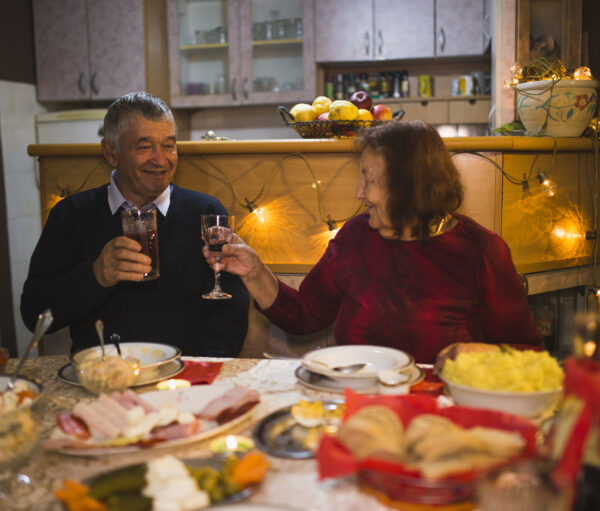Helping Seniors Feel Connected During the Holidays

Research highlights that loneliness is a significant health concern for older adults, with social isolation posing risks similar to those of obesity and smoking. During the holiday season, often considered “the most wonderful time of the year,” seniors may feel a heightened sense of loss and exclusion. To make this season more joyful and inclusive for your senior loved ones, here are some ways to help them stay connected and engaged. Recent studies reveal that loneliness among older adults can have severe health consequences, including an increased risk of heart disease, depression, sleep disturbances, stroke, hypertension, and even dementia.
A study from the Florida State University College of Medicine showed that experiencing loneliness increased the risk of dementia by 31%.
“These results are not surprising, given the mounting evidence that link loneliness to poor health,” said Assistant Professor Martina Luchetti, who led the study. “Dementia is spectrum, with neuropathological changes that start decades before clinical onset. It is important to continue studying the link of loneliness with different cognitive outcomes or symptoms across this spectrum. Loneliness—the dissatisfaction with social relationships—may impact how you are functioning cognitively, and in daily life.”
The impact can be so profound that it may even shorten life expectancy. While the holidays are often associated with joy and togetherness, this time can intensify feelings of loneliness for seniors facing health issues, grieving the loss of a spouse, or living far from family.
Helping seniors stay connected
One way to make seniors feel valued during the holidays is to keep them involved in the celebrations. If a loved one once hosted family gatherings, they may appreciate a break from the hard work but could also feel sadness about stepping back. Involving them in planning, preparation, or offering advice can help them continue to feel like a central part of the festivities. When the celebration begins, ensure they are comfortable, assisting with mobility if needed, and making sure they are seated where they can be fully included in conversations.
It’s also helpful to talk to other guests ahead of time. Family and friends who haven’t seen your loved one recently may feel unsure about how to interact with someone experiencing hearing loss, mobility challenges, or memory decline. Preparing them in advance by explaining any noticeable changes and offering tips for communication can ease their concerns and make conversations more comfortable for everyone.
For seniors with hearing loss, large gatherings can be particularly isolating due to background noise and the difficulty of following conversations. Encourage your loved one to use their hearing aids if necessary, and reduce excess noise like music in the background. Remind guests to speak clearly and slowly, and to face your loved one when speaking, making the conversation easier to follow.
Interacting with children can bring joy to older adults, even those with dementia. If younger family members are visiting, encourage intergenerational bonding through shared activities, like crafts, baking, or reminiscing over old family photos. Children often love hearing stories from their parents’ younger years, and these interactions can create meaningful memories for everyone involved.
If your loved one resides in a senior care community and can’t come home for the holidays, visiting them is a wonderful way to show your support. Bring a thoughtful gift, such as a framed family photo or something to make them more comfortable, like a warm robe. Ask the community’s staff for ideas if you’re unsure of what to bring. Many senior communities host holiday events, so plan to attend with your loved one and share in the celebration.
If visiting in person isn’t possible, plan your holiday phone or video calls thoughtfully. Rather than rushing through the conversation, schedule a time for the call, allowing your loved one to be prepared and avoid interruptions during busy moments. Consider making multiple calls, including one a few days after the holidays, to help them avoid feelings of post-holiday isolation.
By focusing on inclusion, thoughtful communication, and meaningful interaction, you can help your senior loved ones feel more connected during the holidays, ensuring this season is filled with warmth and joy, not loneliness.
This article is not intended to replace the advice of your health care provider.
Source: IlluminAge

